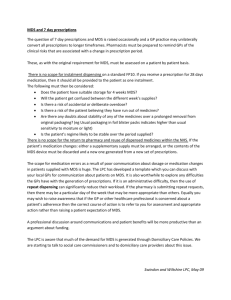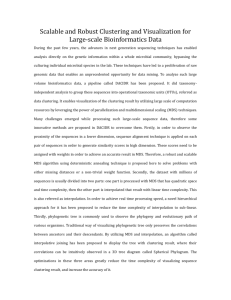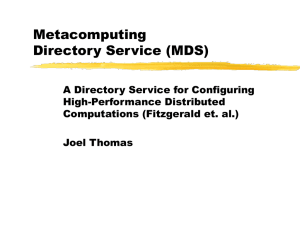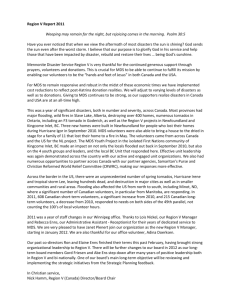Interim Guidance on the supply of Monitored Dosage Systems (MDS
advertisement
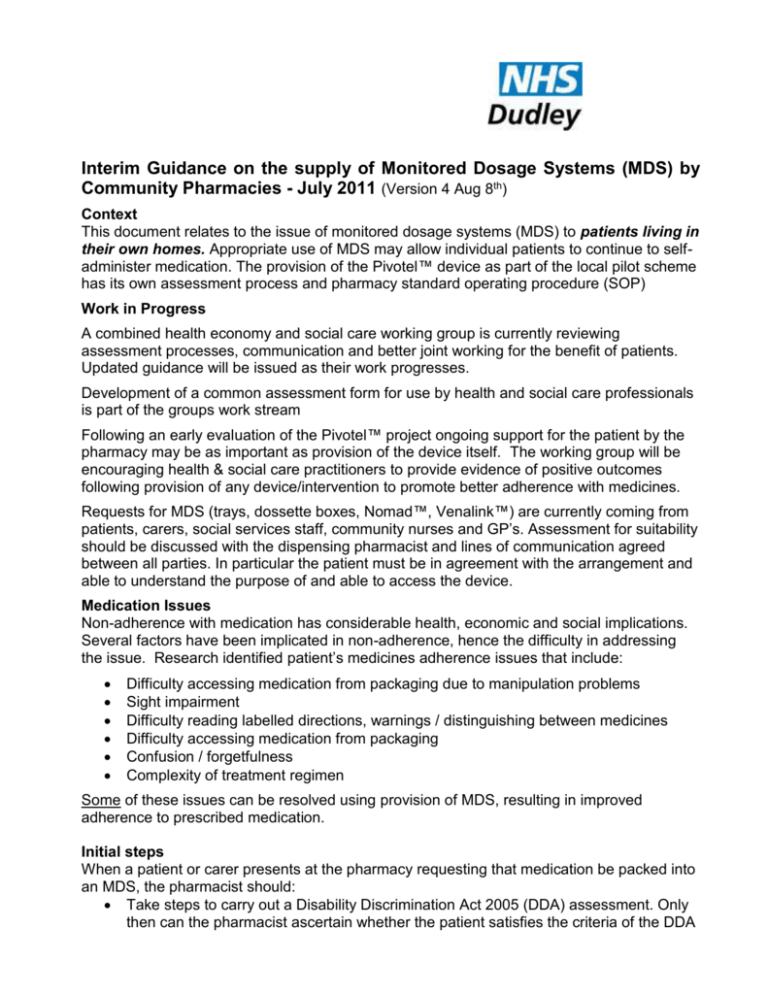
Interim Guidance on the supply of Monitored Dosage Systems (MDS) by Community Pharmacies - July 2011 (Version 4 Aug 8th) Context This document relates to the issue of monitored dosage systems (MDS) to patients living in their own homes. Appropriate use of MDS may allow individual patients to continue to selfadminister medication. The provision of the Pivotel™ device as part of the local pilot scheme has its own assessment process and pharmacy standard operating procedure (SOP) Work in Progress A combined health economy and social care working group is currently reviewing assessment processes, communication and better joint working for the benefit of patients. Updated guidance will be issued as their work progresses. Development of a common assessment form for use by health and social care professionals is part of the groups work stream Following an early evaluation of the Pivotel™ project ongoing support for the patient by the pharmacy may be as important as provision of the device itself. The working group will be encouraging health & social care practitioners to provide evidence of positive outcomes following provision of any device/intervention to promote better adherence with medicines. Requests for MDS (trays, dossette boxes, Nomad™, Venalink™) are currently coming from patients, carers, social services staff, community nurses and GP’s. Assessment for suitability should be discussed with the dispensing pharmacist and lines of communication agreed between all parties. In particular the patient must be in agreement with the arrangement and able to understand the purpose of and able to access the device. Medication Issues Non-adherence with medication has considerable health, economic and social implications. Several factors have been implicated in non-adherence, hence the difficulty in addressing the issue. Research identified patient’s medicines adherence issues that include: Difficulty accessing medication from packaging due to manipulation problems Sight impairment Difficulty reading labelled directions, warnings / distinguishing between medicines Difficulty accessing medication from packaging Confusion / forgetfulness Complexity of treatment regimen Some of these issues can be resolved using provision of MDS, resulting in improved adherence to prescribed medication. Initial steps When a patient or carer presents at the pharmacy requesting that medication be packed into an MDS, the pharmacist should: Take steps to carry out a Disability Discrimination Act 2005 (DDA) assessment. Only then can the pharmacist ascertain whether the patient satisfies the criteria of the DDA and therefore qualifies to have the dispensing service modified to enable them to use it safely. MDS is just one of the modifications that could be made – large print labels, reminder charts and easy opening non-child-resistant containers are other examples. Supporting materials for carrying out these assessments are available from the Pharmaceutical Services Negotiating Committee website: http://www.psnc.org.uk/pages/disability_discrimintation_act_dda_1995.html and the Primary Care Contracting website: www.primarycarecontracting.nhs.uk/98.php The DDA applies to a disabled person if they have or are expected to have a long term disability (defined as 12 months or longer) that affects at least one of the following: o Mobility o Manual dexterity o Physical co-ordination o Speech, hearing or eyesight o Memory o Ability to concentrate, learn or understand o Continence o Ability to lift, carry or move everyday objects o Understanding of the risk of physical danger If a pharmacist fails to provide a compliance aid to a patient who qualifies under the DDA Act they may be liable to prosecution. Pharmacists should therefore keep records of DDA assessments, including date of assessment and outcome. This information is useful for self-audit of compliance with DDA and also as a defence measure in the event of a complaint. If the patient satisfies DDA criteria, the pharmacist should make such modifications to the service as are deemed necessary – this may include provision of medication in an MDS pack. Remuneration for modifications to dispensing services to enable DDA compliance has been included in the core pharmacy contract payment since April 2005. It is therefore not appropriate to approach prescribers to stipulate that 7-day prescriptions must be provided before agreeing to dispense into MDS for this group of patients. If the patient does not satisfy DDA criteria but they or their relative/carer wish to receive their medication in an MDS pack they can pay the pharmacy a fee to dispense into an MDS container. Pharmacists should now, over the next few months, take steps to assess patients who are already receiving MDS packs to ascertain whether they satisfy DDA criteria. Under what circumstances might a 7-day prescription be appropriate? Where the prescriber’s clinical decision is that: o Flexibility is required to change the medication at short notice. o The patient’s medicine needs are unstable and liable to change o There may be risk to the patient or others from having too much medicine in the home o Weekly provision of MDS is required. Appropriate use of weekly prescriptions There will be occasions when weekly prescriptions (or even daily!) are the best way to deal with a situation. For example, where a prescriber has concerns over patient safety such as potential overdose or suicide risk, prescribing for some addicts, or where frequent dose changes occur. In all other cases, where a 28-day prescription for MDS is presented, the medication can be dispensed at one dispensing using either four 7-day trays or one 28-day tray. If seven day prescriptions have been requested and are provided by a practice, then the pharmacy should be dispensing the MDS at seven-day intervals (and also delivering weekly if part of collection delivery service). Prescribers should be aware that where a change is made to therapy ‘mid-pack’ pharmacists are not allowed to re-use or re-package existing MDS packs and will require a whole set of new prescriptions to generate the updated MDS packs – this should be taken into account when deciding whether 7 or 28-day prescriptions are most appropriate for the patient concerned. Existing local arrangements, agreed recently, between GP practice and dispensing pharmacies that have demonstrated positive patient outcomes must be monitored and reviewed regularly. A project to collect evidence of positive patient outcomes with MDS is under development. Any pharmacy or GP practice willing to take part please contact MM Team at PCT. Disadvantages of MDS The PCT does not promote routine use of MDS prepared by a community pharmacy because there are many disadvantages: Potential errors due to secondary dispensing Complete re-dispensing may be needed if treatment is changed (involving wastage) Not all medicines can be packed in MDS, due to various stability problems Liquid medicines, creams and those taken ‘as required or as directed’ are not suitable for MDS MDS may not be child resistant MDS preparation is very labour intensive Failure to communicate a treatment change to dispenser could result in patient continuing to receive unintended treatment. MDS will not improve compliance in patients that intentionally do not want to take their medication. Disadvantages of weekly prescriptions Increased workload for practice (normally 4 prescriptions are prepared as a batch) Potential for error / confusion due to use of different treatment period / prescription printing protocols (especially in practices actively involved in repeat dispensing) Judith Hesslewood, Dudley PCT + Acknowledgements to Warwick & South B’ham PCTs If care homes request MDS packs for their residents, this arrangement and any resulting financial issues should be discussed and agreed between the dispensing pharmacy and the home concerned. It is not appropriate to expect the GP practice to provide 7 day prescriptions in these circumstances unless a patient has medicine needs which have yet to be stabilised – see above.
